Public hearing continues in Kosovo case
The Kosovo debate before the International Court of Justice in The Hague continueD this Wednesday.
Wednesday, 02.12.2009.
09:12

The Kosovo debate before the International Court of Justice in The Hague continueD this Wednesday. On the first day of the proceedings yesterday, Serbia and Kosovo Albanian representatives had a chance to present their arguments. Public hearing continues in Kosovo case The case was sent to the highest UN court by the UN General Assembly last year at Serbia's request, with the goal of establishing the legality of the February 2008 unilateral declaration of independence of Kosovo. Until December 11, 27 more countries, both supporters and opponents of the proclamation, will give their arguments, including China, the United States and Russia. But the judges are expected to deliberate the case for several months before giving their opinion. Albania, Germany and Saudi Arabia, the countries that recognized the declaration, were the first to present their legal arguments in favor. Each country has 45 minutes for their presentation. As others who have recognized Kosovo's secession, they were expected to claim that the province's ethnic Albanians have a right to self-determination due to violations of their rights, that UNSCR 1244 did not contain provisions to prevent it, and that some 60 countries have accepted this by recognizing Kosovo. Belgrade, on the other hand, argued yesterday that the proclamation was an ethnically motivated act of secession that is undermining the foundations of international law, and was in violation of Resolution 1244. One of the countries in Serbia's corner is Argentina, and its representatives also addressed the court today. Argentina sent one of the longest written statements to the court during the previous stage of the proceedings, disputing the legality of the unilateral proclamation. Argentine expert Marcelo Kohen is also in the official Serbian delegation, which is led by Serbia's Ambassador to France Dusan Batakovic, and also included FM Vuk Jeremic. As he spoke on Tuesday, Kohen reminded that the UN General Assembly, Security Council or any other international institution have never before accepted the secession of the territory of a country in the way that those who support Kosovo's independence are advocating. Find the transcripts from the first day of the hearing here On December 7, the ICJ will hear the arguments of Cyprus, which not only says that the unilateral declaration was contrary to international law, but also provides a list of all the regions in the world that could be destabilized with separatist demands, in case the court supports the secession of Kosovo. A day later, both Washington and Moscow will have their representatives address the court. Argentina: Severe violation of international law Find the transcript from the second day of the hearing here The delegation of Argentina supported today Serbia's stand that the secession of Kosovo represents the most severe violation of international law and threatens the established international order, adding that "a bright future of a country cannot be built in that manner". The head of the delegation, Susana Ruiz Cerutti, said that the advisory opinion of the ICJ will have far-reaching consequences and not only deal with the Kosovo issue. She pointed out that the unilateral declaration was not in keeping with international law, that it endangered Serbia's territorial integrity and violated UN Security Council Resolution 1244, which proscribes the international administrative and security presence, "and did not, and could not, abolish Serbia's sovereignty over Kosovo". The very resolution has excluded the right to self-rule which is underscored by the defenders of independence, Cerrutti said, adding that the Kosovo status will be determined through talks and compromise which have to be in line with Resolution 1244. She stated that the unilateral declaration of independence was the result of a coordinated action of provisional Kosovo institutions and states that supported it. Albania, Germany, Saudi Arabia: No contradiction Earlier in the day, Albania, Germany and Saudi Arabia supported the unilateral proclamation by claiming that it was not in contradiction with international law, but that it was "in line with the right of people to self-determination". The secession of Kosovo "had nothing to do with international law, as the law did not define the issue of secession, therefore, secession is not forbidden", news agencies reported their arguments. Legal Adviser of the German Federal Foreign Office Susanne Wasum-Rainer suggested that the judges should examine the case of Kosovo by relying on facts, that is, "the situation on the ground". According to her, one of the principles of international law, the principle of efficiency, is "the only principle that can be applied in the case of Kosovo, since Kosovo fulfills the elements of statehood and its people, territory and government have nation-building qualities". "Kosovo has become an independent state because it has been recognized by 63 members of the United Nations, as well as by 109 members of the International Monetary Fund (IMF) and the World Bank (WB)," Wasum-Rainer concluded. Speaking on the behalf of the Albanian delegation, Professor Jochen Frowein argued that "secession is not regulated by international law". "There is nothing international law can say about the declaration of Kosovo's independence," he said, and noted that "a majority of the UN member countries had not expressed a wish to take part in the debate" at the ICJ. Pristina rejects negotiations, warns of "chaos" A delegation from Kosovo, led by Skender Hiseni, defended the Kosovo Albanian declaration before the ICJ in The Hague on Tuesday by saying that it was "the will of the people" and rejecting any possibility of opening new Kosovo status negotiations. The head of the delegation, which was referred to by the ICJ not as Kosovo but as "the authors of the independence declaration," said that it had been the realization of the will of "Kosovo's people", reflecting their "desire to decide their political status for themselves". Hiseni said that "regardless of the past problems and sufferings undergone by Kosovo's people, Kosovo still had a desire to build good relations with Serbia and negotiate practical issues of life in that ethnically mixed community". He stressed that Kosovo could not enter negotiations that questioned its status as a "sovereign and independent state". Hiseni remarked that those who wanted to renew the status negotiations were "either unaware of the current situation or were trying to cause chaos in the region", adding that Kosovo had been recognized by all the "neighboring countries", except Serbia. The delegation also included British international law expert Michael Wood, who gave an unusual summary of the region's history, claiming that Kosovo – which was part of the Serbian medieval empire before it was invaded by Ottoman Turks in the late 14th century – was "forcibly occupied" by Serbs and taken from the Ottomans, to be annexed to Serbia in the 20th century. That is, he said, when violations of the rights of the Albanian population started.
Public hearing continues in Kosovo case
The case was sent to the highest UN court by the UN General Assembly last year at Serbia's request, with the goal of establishing the legality of the February 2008 unilateral declaration of independence of Kosovo.Until December 11, 27 more countries, both supporters and opponents of the proclamation, will give their arguments, including China, the United States and Russia. But the judges are expected to deliberate the case for several months before giving their opinion.
Albania, Germany and Saudi Arabia, the countries that recognized the declaration, were the first to present their legal arguments in favor. Each country has 45 minutes for their presentation.
As others who have recognized Kosovo's secession, they were expected to claim that the province's ethnic Albanians have a right to self-determination due to violations of their rights, that UNSCR 1244 did not contain provisions to prevent it, and that some 60 countries have accepted this by recognizing Kosovo.
Belgrade, on the other hand, argued yesterday that the proclamation was an ethnically motivated act of secession that is undermining the foundations of international law, and was in violation of Resolution 1244.
One of the countries in Serbia's corner is Argentina, and its representatives also addressed the court today.
Argentina sent one of the longest written statements to the court during the previous stage of the proceedings, disputing the legality of the unilateral proclamation.
Argentine expert Marcelo Kohen is also in the official Serbian delegation, which is led by Serbia's Ambassador to France Dušan Bataković, and also included FM Vuk Jeremić.
As he spoke on Tuesday, Kohen reminded that the UN General Assembly, Security Council or any other international institution have never before accepted the secession of the territory of a country in the way that those who support Kosovo's independence are advocating.
Find the transcripts from the first day of the hearing here
On December 7, the ICJ will hear the arguments of Cyprus, which not only says that the unilateral declaration was contrary to international law, but also provides a list of all the regions in the world that could be destabilized with separatist demands, in case the court supports the secession of Kosovo.
A day later, both Washington and Moscow will have their representatives address the court.
Argentina: Severe violation of international law
Find the transcript from the second day of the hearing hereThe delegation of Argentina supported today Serbia's stand that the secession of Kosovo represents the most severe violation of international law and threatens the established international order, adding that "a bright future of a country cannot be built in that manner".
The head of the delegation, Susana Ruiz Cerutti, said that the advisory opinion of the ICJ will have far-reaching consequences and not only deal with the Kosovo issue.
She pointed out that the unilateral declaration was not in keeping with international law, that it endangered Serbia's territorial integrity and violated UN Security Council Resolution 1244, which proscribes the international administrative and security presence, "and did not, and could not, abolish Serbia's sovereignty over Kosovo".
The very resolution has excluded the right to self-rule which is underscored by the defenders of independence, Cerrutti said, adding that the Kosovo status will be determined through talks and compromise which have to be in line with Resolution 1244.
She stated that the unilateral declaration of independence was the result of a coordinated action of provisional Kosovo institutions and states that supported it.
Albania, Germany, Saudi Arabia: No contradiction
Earlier in the day, Albania, Germany and Saudi Arabia supported the unilateral proclamation by claiming that it was not in contradiction with international law, but that it was "in line with the right of people to self-determination".The secession of Kosovo "had nothing to do with international law, as the law did not define the issue of secession, therefore, secession is not forbidden", news agencies reported their arguments.
Legal Adviser of the German Federal Foreign Office Susanne Wasum-Rainer suggested that the judges should examine the case of Kosovo by relying on facts, that is, "the situation on the ground".
According to her, one of the principles of international law, the principle of efficiency, is "the only principle that can be applied in the case of Kosovo, since Kosovo fulfills the elements of statehood and its people, territory and government have nation-building qualities".
"Kosovo has become an independent state because it has been recognized by 63 members of the United Nations, as well as by 109 members of the International Monetary Fund (IMF) and the World Bank (WB)," Wasum-Rainer concluded.
Speaking on the behalf of the Albanian delegation, Professor Jochen Frowein argued that "secession is not regulated by international law".
"There is nothing international law can say about the declaration of Kosovo's independence," he said, and noted that "a majority of the UN member countries had not expressed a wish to take part in the debate" at the ICJ.
Priština rejects negotiations, warns of "chaos"
A delegation from Kosovo, led by Skender Hiseni, defended the Kosovo Albanian declaration before the ICJ in The Hague on Tuesday by saying that it was "the will of the people" and rejecting any possibility of opening new Kosovo status negotiations.The head of the delegation, which was referred to by the ICJ not as Kosovo but as "the authors of the independence declaration," said that it had been the realization of the will of "Kosovo's people", reflecting their "desire to decide their political status for themselves".
Hiseni said that "regardless of the past problems and sufferings undergone by Kosovo's people, Kosovo still had a desire to build good relations with Serbia and negotiate practical issues of life in that ethnically mixed community".
He stressed that Kosovo could not enter negotiations that questioned its status as a "sovereign and independent state".
Hiseni remarked that those who wanted to renew the status negotiations were "either unaware of the current situation or were trying to cause chaos in the region", adding that Kosovo had been recognized by all the "neighboring countries", except Serbia.
The delegation also included British international law expert Michael Wood, who gave an unusual summary of the region's history, claiming that Kosovo – which was part of the Serbian medieval empire before it was invaded by Ottoman Turks in the late 14th century – was "forcibly occupied" by Serbs and taken from the Ottomans, to be annexed to Serbia in the 20th century. That is, he said, when violations of the rights of the Albanian population started.
















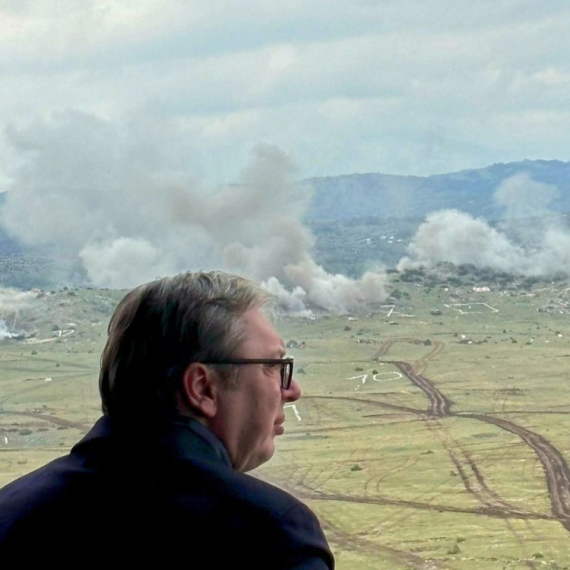
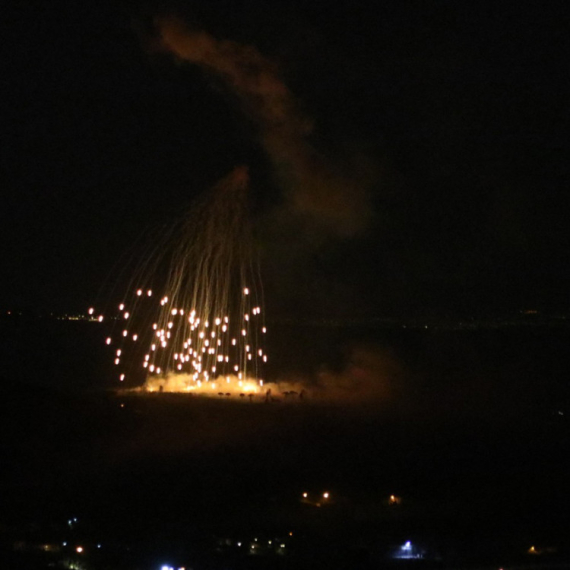
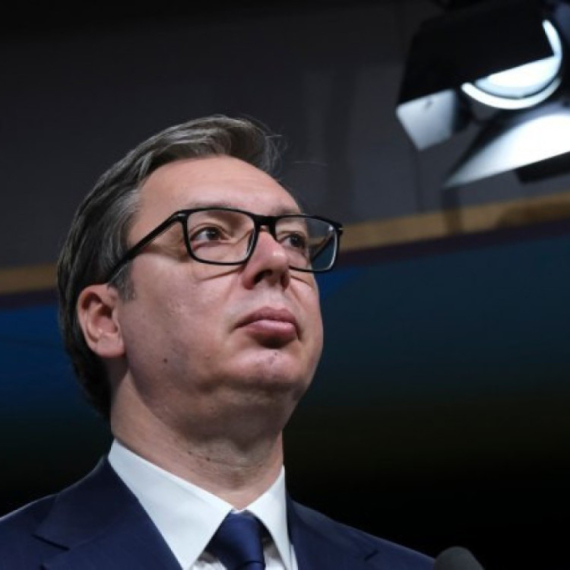
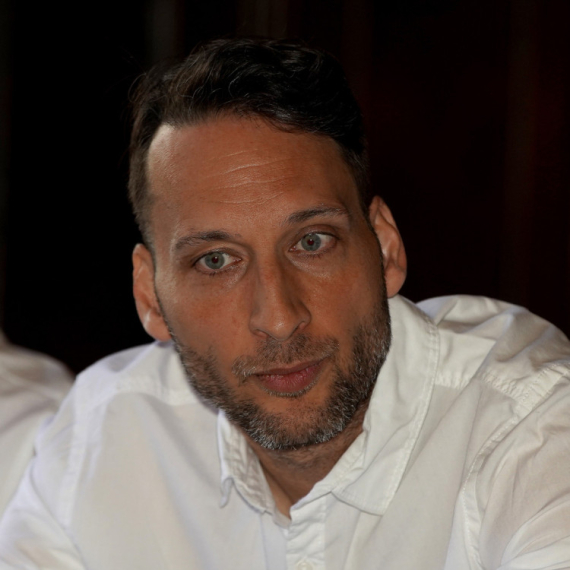

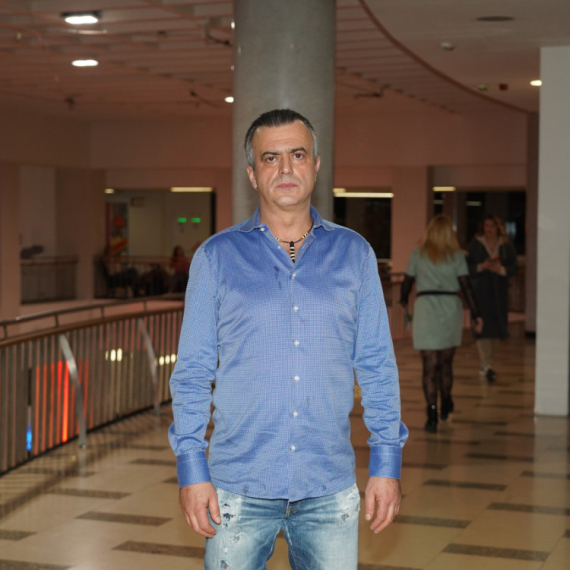




































Komentari 88
Pogledaj komentare